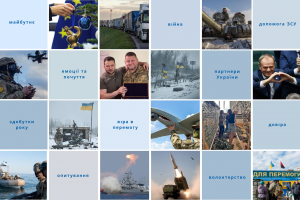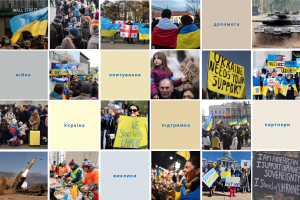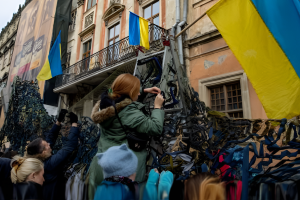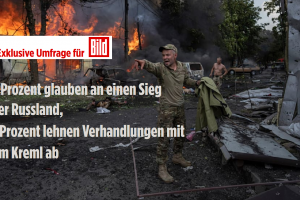Public opinion of the population of Ukraine on NATO
Public opinion of the population of Ukraine on NATO
Nationwide polling of the population of Ukraine was conducted by the Ilko Kucheriv Democratic Initiatives Foundation and the Razumkov Center from June 9–13, 2017. 2,018 respondents aged 18 years and older in all regions of Ukraine with the exception of Crimea and the occupied territories in Luhansk and Donetsk oblasts were polled. The theoretical margin of error was 2.3%.
Polling was conducted with the financial support of the Matra Program of the Embassy of the Kingdom of the Netherlands in Ukraine.
For comparison, data of polling conducted in 2012–2016 by the Ilko Kucheriv Democratic Initiatives Foundation in collaboration with the Razumkov Center and the Kyiv International Institute of Sociology is provided.
- Since 2014, the orientation towards accession to NATO as the best way of guaranteeing the security of Ukraine has prevailed. Compared to 2012, the share of those who consider this way better than other security options grew more than threefold: in 2012, accession to NATO as a source of security was chosen by 13%, in Maу 2014 – 33%, December 2014 – 44%, November 2015 – 46%, June 2017 – 47%. As of June 2017, 47% of Ukrainians consider membership in NATO the best guarantee of national security.
- Over the past years, the support of NATO underwent radical changes. Indeed, in 2012, the only macro-region of Ukraine where the relative majority of the people supported membership in the Alliance was the West, but even there only 37% of the population expressed their support of membership in NATO, while 34% gave preference to non-aligned status. In other regions, the share of those oriented towards NATO as a guarantee of safety fluctuated from 1% (in Donbas) to 14% (in the Central region).
- In 2014, the number of proponents of NATO in all macro-regions of Ukraine began to grow. As of June 2017, 81% of the residents of Western Ukraine choose membership in NATO as a guarantor of security, in Central Ukraine – 68% (in April 2012 – 14%), in the South of Ukraine – 20% (in April 2012 – 7%), in the East – 32% (in April 2012 – 2%).
- The readiness to participate in a referendum on NATO membership remains approximately at the same level since 2012. Indeed, if such a referendum on Ukraine joining NATO had been held in June 2017, 66% of the population would participated in it. While residents of the West demonstrated the highest hypothetical turnout in a referendum (81%), those in the Southern region showed the lowest figure (42%). In this referendum, the majority (69%) would vote “in favor” of accession to NATO, while 26% would vote “against” and 26% are undetermined. In April 2012, (just as in previous years) voting would have been diametrically opposed: 61% of those who would have participate in the referendum would have voted “against” and only 28% – “for”.
- At the same time, the results of a hypothetical referendum on Ukraine’s membership in NATO would vary in different regions of Ukraine: Ukrainians from the Western region (“in favor” – 71%, “against” – 11%, undecided – 17%) and the Central region (“in favor” – 52%, “against” – 30%, undecided – 17%) would support the membership in NATO. Residents of the Southern region (“in favor” – 25%, “against” – 43%, undecided – 33%) and the Eastern region (“in favor” – 32%, “against” – 53%, undecided – 15%) would mostly vote “against”.
- Overall, if given an alternative choice on NATO as mechanism of “defense” or a “threat”, 44% of the people would choose “defense”, 15% – “a threat”, and in the opinions of 26%, NATO is neither a mechanism of “defense” nor a “threat” to Ukraine (16% did not give a specific answer). There are significant regional differences in the understanding of what NATO means for Ukraine: in the Western region, NATO is undoubtedly perceived as a defense mechanism (81%) and perception of NATO as a defense mechanism significantly prevails in the Central region of Ukraine (68%). In the Southern and Eastern regions there is no unanimous opinion: in the Southern region 19% of the residents perceive NATO as a defense mechanism and 18% perceive it as a “threat”. For 25%, NATO is neither a defense mechanism, nor a threat, while 37% could not express a definite position at all. In the Eastern region 30% of the people perceive NATO as a defense mechanism, while 28% – as a threat and 30% see in NATO neither a defense mechanism, nor a threat for national security.








